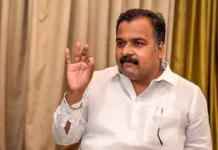
BOSTON: Hillary Rodham Clinton has said that treatment for drug and alcohol addiction should be on a par with diabetes, cancer, heart disease and other medical conditions.
The front-runner for the Democratic presidential nomination spoke at a forum in Boston.
She said when she began her campaign that she didn’t understand the extent of the addiction-treatment problem until she started talking to people as she campaigned. She said she heard stories from people who had trouble finding treatment for themselves or for loved ones struggling with addiction.
Clinton, who has proposed spending $10 billion over 10 years to increase treatment, said those conversations convinced her that the U.S. needs to confront the issue more directly.
“If you have heart disease, cancer, diabetes, you can find a place and you should be able to find a place, and I want substance abuse put on the same level,” Clinton told the audience. “It saves people’s lives. There’s nothing more important. Save somebody’s life. Give somebody a second chance.”
Campaign officials estimated the attendance at about 400.
Clinton said the prescribing of powerful prescription painkillers has also contributed to the national heroin abuse problem. She said an estimated 23 million people in the country are struggling with drug and alcohol addiction but only 1 in 10 has access to treatment.
Clinton also said the ready availability and abuse of prescription drug painkillers have helped create “a viscous, downward spiral,” with individuals getting hooked on opioid from painkillers and then shifting to cheaper heroin in search of a similar high.
She said there are better ways to treat pain without potentially leaving patients addicted.
If elected president, she said, she would instruct the federal Food and Drug Administration to study who should be prescribed these powerful medications, what the recommended dose should be, and how long the prescription should last.
Clinton was joined by Boston Mayor Martin Walsh and Massachusetts Attorney General Maura Healey.
Walsh, a recovering alcoholic who said he hasn’t had a drink since 1995, said that when he was first elected to the state Legislature 17 years ago, the problem of addiction and treatment wasn’t a priority.
“We’ve gone from having a problem that we kept in the closet to talking about it on the presidential stage,” Walsh said.
Massachusetts has experienced a spike in opioid-related overdose deaths. Health officials say an estimated 1,256 people died from opioid-related overdoses in 2014, compared with an estimated 939 deaths in 2013 and 668 confirmed overdose deaths in 2012.-AP






